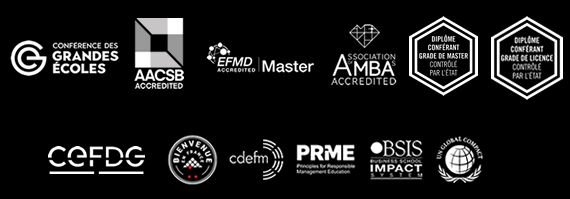Over 50 participants gathered at the De Vinci Research Center (DVRC) for the Young Researcher Day. The gathering highlighted the young researchers’ innovative and socially responsible projects.
This platform amplifies the importance of transversal research and celebrates the integration of management sciences and engineering, showcasing the pioneering efforts of doctoral and research track students. They present their work on various contemporary and impactful topics that have the potential to change their respective fields significantly.
A glimpse into the research being showcased:
Banking Loan Management
An Optimal Replenishment Strategies in Credit Portfolios: A Long-Term Dynamic Approach: This research explores sophisticated strategies for managing credit portfolios, aiming to enhance the stability and efficiency of banking loan management systems over extended periods.
Respiratory Simulation Models
Numerical Treatment of Dissipative Boundary Conditions for Navier-Stokes Equations: Application to Respiratory Tracts: This study delves into the complexities of respiratory simulations, offering advanced numerical methods to understand better and predict airflow within the respiratory system.
Blood Flow Prediction
Modelling Blood Flow in a Stenosed Artery Using the Oldroyd-B Model: Focused on medical innovation, this research models the intricate blood flow behaviour in narrowed arteries, potentially leading to improved diagnostic and treatment methods.
AI & Education
Attention Management in Higher Education Students: The Case of ChatGPT: This study investigates the impact of AI tools like ChatGPT on student attention and learning and seeks to enhance educational strategies and outcomes through technology integration.
Open Big Data & Sustainability
Data Lakes and Metadata Repositories to develop urban sustainability indicators using open big data, Applied to urban sports practices: This project leverages open big data to create sustainability indicators, particularly in urban sports, to foster more sustainable urban living environments.
Food Waste Reduction & Energy Efficiency
Hybrid Freezing of Food Products Through Hydrate Formation: This research addresses food waste and energy consumption by exploring innovative freezing techniques to preserve food more efficiently and sustainably.
Energy Recovery & Environmental Sustainability
Study and Optimization of Vibratory Energy Harvesters: Focusing on renewable energy solutions, this study aims to optimize devices that harvest vibratory energy, contributing to greener and more sustainable energy practices.
Smart Cities & Security
Multilayered Approach for the Automatic Detection of Complex Events from Multi-Source Videos: This research enhances urban security by developing sophisticated systems for automatically detecting complex events using diverse video sources, which is crucial for modern intelligent city infrastructure.
Visitor Experience & Local Resource Management Optimization
Frequent Pattern Mining for Circulatory Tourist Behavior Analysis: This study employs data mining techniques to analyze tourist behavior, aiming to optimize visitor experiences and local resource management in tourism-dependent areas.
Mental Health Management & More Empathetic Health Systems
Coordination and Patient-Centered Care Approach in Mental Health Management: To promote empathetic healthcare, this research emphasizes coordinated, patient-centered approaches to mental health management, striving to improve patient outcomes and care quality.
Autonomous Robots & Complex Tasks
Design and Study of Interaction Methods for Decentralized Swarm Robotics: This study focuses on deploying autonomous robots for complex tasks.
Cybersecurity
Hybrid and Self-Supervised Approach for Malware Detection: Addressing the critical issue of cybersecurity, this research proposes advanced methods for detecting malware and enhancing the protection of digital environments.
Recommendation System
Real-Time Technological Monitoring Recommendations for Evolving Multi-Criteria Profiles: This project develops a sophisticated recommendation system for real-time technological monitoring, adapting to dynamic multi-criteria profiles to provide relevant and timely advice.
These diverse research topics are a testament to the continuing commitment of students and the De Vinci Research Center to innovation and sustainability.
Their work is not just academic excellence but a symbol of hope for a more sustainable and socially responsible future as they address real-world challenges with confidence and determination.
Learn more about DVRC and EMLV’s programmes






















